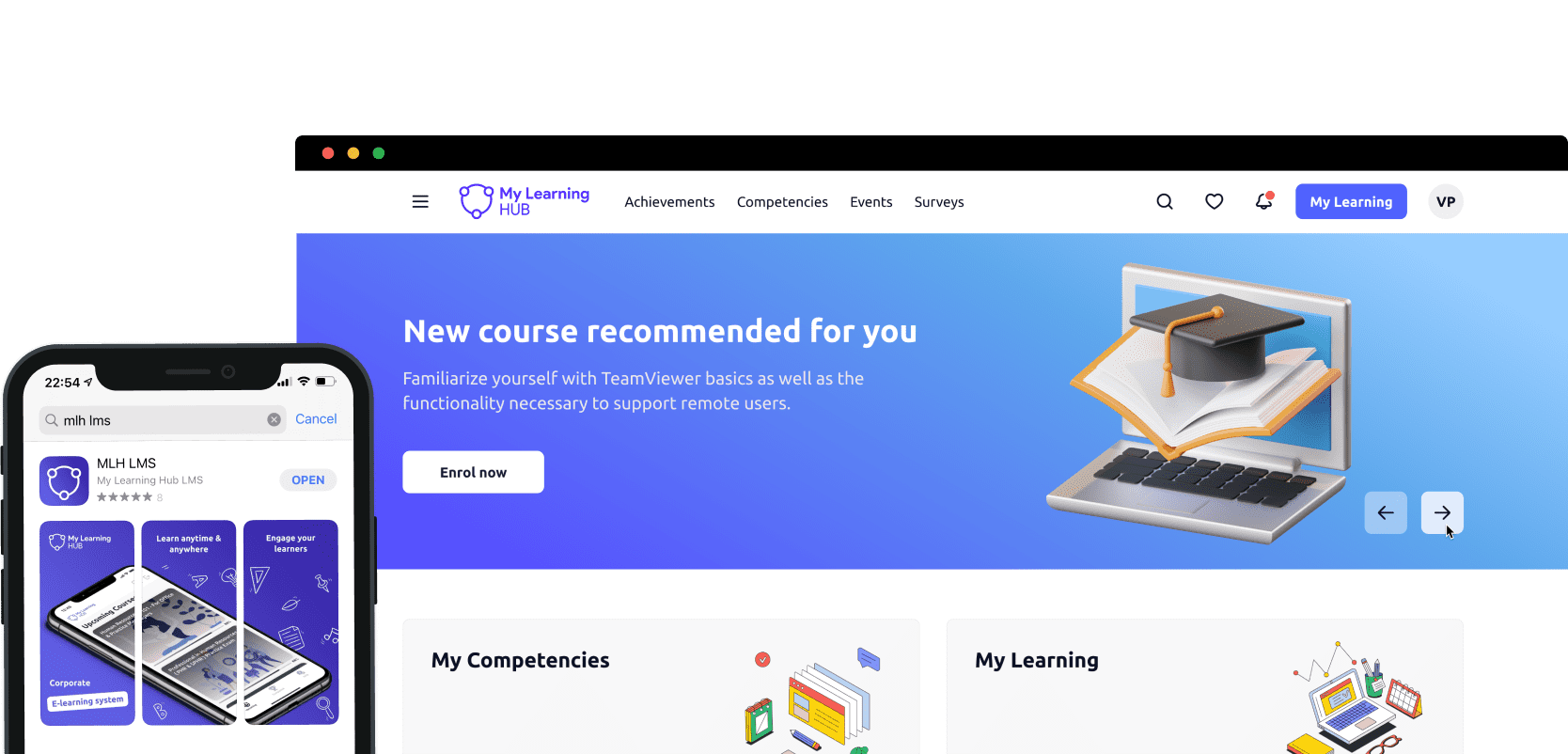
When it comes to selecting an LMS, there are a lot of things to consider. What are your needs? What features are important to you? How much can you afford to spend? This post will look at some of the most important factors to remember when deciding.
You'll also learn about some of the top LMS solutions to start narrowing down your options. And a few tips for making the process easier.
So, whether you're looking for your first LMS or are just exploring your options, Keep reading for more information!
The Benefits of Using an LMS
Learning management systems (LMSs) help businesses train employees and deliver courses. LMSs are used to create, track, and manage employee learning. They can also be used to develop and deliver online courses.
Many businesses use an LMS to store employee training records, create custom learning portals, and deliver compliance training. An LMS can also be used to create social learning experiences, such as forums and discussion groups.
In addition to delivering training content, an LMS can also be used to assess employee knowledge and skills. By using an LMS, businesses can ensure that employees have the knowledge and skills they need to be successful.
What are Essential LMS Requirements?
To choose an LMS, there are a few key things that you'll want to keep in mind. First and foremost, you'll need to consider LMS requirements.
What do you want from an LMS? What features are the most important to you? You can then narrow down your choices.
Ease of use
LMS requirements for ease of use vary depending on the user. However, users can highlight some general LMS requirements.
These LMS requirements include the ability to easily create and edit content easily, add and remove users, and track user progress. In addition, LMS requirements for ease of use also include the ability to provide an engaging and interactive user experience.
When these LMS requirements are met, users can quickly find the information they need, access relevant courses and receive certificates upon their completion, feeling more satisfied and confident with the use of their LMS.
Ability to create and manage courses
Any good e-learning developer knows that a key component of any successful learning management system (LMS) is the ability to create and manage courses easily.
Course creation is the process of designing and developing a learning experience for users, and it can be a time-consuming task, which is often outsourced to dedicated instructional designers and content developers.
However, an LMS that offers course management features can help in-house training managers and L&D specialists save time by providing tools for creating, organising, and delivering courses themselves.
Course management features can also help ensure that courses are consistent with the organisation's learning goals and can be automatically updated across all distribution channels.
Customisable features
A learning management system, or an LMS, is a powerful tool for trainers. However, not all LMSs are created equal. Some have more features and customisation options than others.
When choosing an LMS for your company, it is important to consider the needs of your users. Do you need an LMS that can be customised to meet the unique needs of your employees, partners and customers? Does the required level of customisation go beyond white-labelling and branding features? Or would a more basic platform be sufficient?
Consider your budget, your resources, and your goals before making a decision. With so many options, you are sure to find an LMS that meets your customisation needs.
Integration with other tools
One of the most important features of an LMS is its ability to integrate with other tools and systems. This allows businesses to create a comprehensive training programme that meets their employees' needs across a wider software stack.
Integration with an HRIS, or Human Resources Information System, is essential for businesses using their LMS to track employee performance and compliance with training requirements.
By integrating with other tools and systems, an LMS can help businesses create a more efficient and effective training programme that can be translated in other parts of their work life.
Pricing and Licencing Models
Every organisation has different training needs, meaning there is no one-size-fits-all approach to pricing or licensing an LMS. For example, if you need an LMS that employees can use across multiple locations, you'll want to choose a model that offers unlimited users.
On the other hand, if you only need an LMS for a specific team or project, you might opt for a pay-per-use model.
Some subscription-based models offer a certain number of users access to the LMS for a set period. Others, like My Learning Hub, work on a cloud storage-based pricing without per user per month limitations, which is especially important for extended enterprise and external training.
Implementation and Support
When considering an LMS for your organisation, it's important to consider the short-term needs and the long-term support and maintenance required.
A good LMS vendor will be able to provide you with not only the software but also the training and support needed to ensure a successful implementation. They will also have a solid understanding of your LMS requirements and be able to offer advice and guidance on which features will best meet your needs.
Verdict
When selecting an LMS, businesses should consider their needs, budget, and resources. They should also consider the user experience and the integration with other tools. Pricing and licensing models vary depending on the organisation's needs.
And businesses should think about implementation and support when adopting an LMS. Companies can choose the best LMS for their needs by considering these factors.
Book a demo to see how My Learning Hub can help your business learn and grow!










